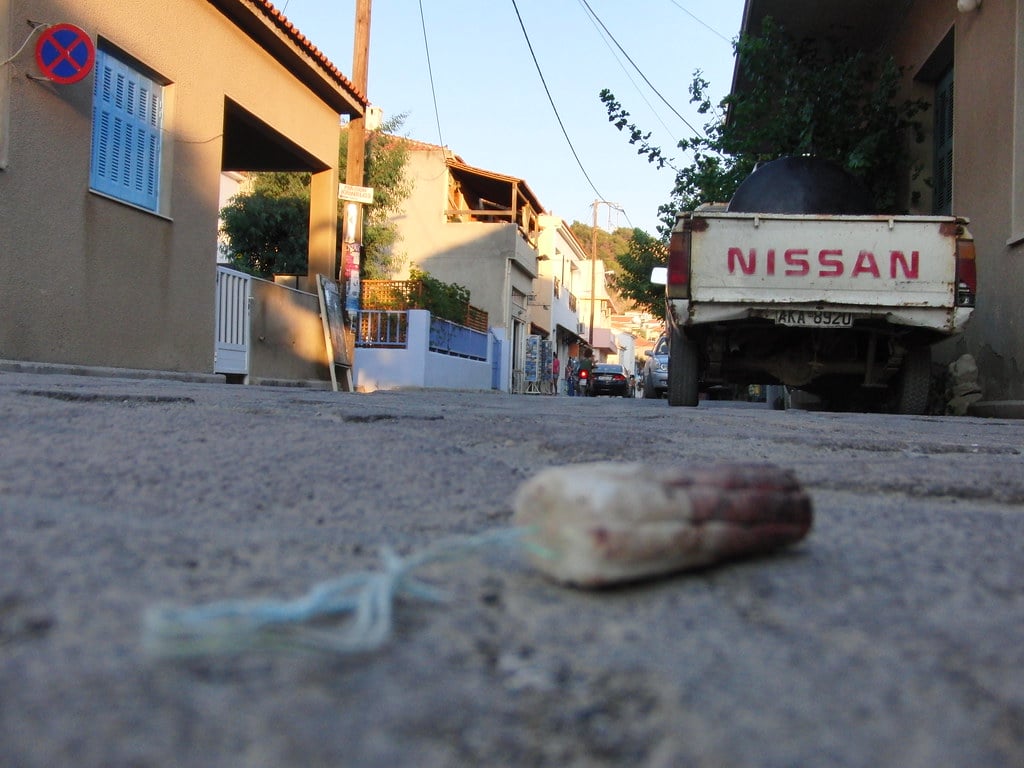Key Takeaways:
- Tampons are designed to expand and can cause a blockage in your furbaby’s intestine.
- Tampons aren’t easily digested in the gut.
- Signs your dog may show after eating a tampon include vomiting and lethargy.
We all know dogs are not the most discerning of diners and will eat almost anything they shouldn’t. Forget the embarrassment, if your dog eats a tampon, it could be a medical emergency, and you should call your veterinarian for advice.
Think about the function of a tampon, it’s designed to expand in the body and absorb fluid, so if your pooch eats one, it does its job and can expand to cause a blockage in your dog’s intestines. Tampons are also designed to remain intact within a body cavity for an extended period of time; thus, they’re not readily digested by our pooch’s stomach acid.
If your pooch eats either a used or unused tampon, the complications that can occur range from a mild tummy upset to a serious medical emergency requiring surgery. For example, if your dog eats a used tampon, they may be lucky and just have a tummy upset and vomit it back up. Conversely, if your dog eats an unused tampon, it may cause a blockage requiring surgery to remove it. Read on to find out what to do if your best furiend eats a tampon…
If your pooch eats a tampon (either used or unused), you should contact your veterinarian for their advice. Your DVM may be able to induce vomiting if your pup ate the tampon within just a few hours and avoid surgery.
How many tampons can my pooch eat before causing a problem?
Just a single tampon can cause a blockage in your dog’s gut, necessitating surgery, so if your pooch feasts on a few, then a blockage is almost a certainty. Used tampons are already expanded to a degree and may cause vomiting due to blockage rather quickly. Some dogs are lucky enough to vomit up the offending article, thus resolving the issue.
Just one tampon can cause a blockage for your pooch! If the tampon expands rapidly and causes a blockage in your dog’s stomach, they may vomit and bring up the tampon, thus resolving the blockage and avoiding a major medical issue.
What to do if my dog ate a tampon?
If your furbaby gulps down a tampon, you should contact your DVM, no matter whether the tampon was used or unused.
All tampons can cause a blockage in your pooch’s intestines, no matter whether your furbaby is small or large. Monitoring your dog for a short time (about an hour) after they’ve eaten a tampon is ok to see if they vomit, particularly if they’re a large dog.
If your pooch is small, e.g., Chihuahua, then they should see your DVM as soon as possible, as the blockage is much more likely. I don’t recommend trying to induce vomiting yourself, as at-home methods are unreliable and may just cause your pooch more discomfort.
The best course of action is to call your veterinarian if your pooch eats a tampon. Just one tampon can cause a blockage. At-home methods of inducing emesis (vomiting) are unreliable and may just cause further tummy upset to your dog.
When to see a vet?
Your furbaby has just eaten a tampon, and you’re wondering when to call your veterinarian. Another thought is to wonder if monitoring them to see if it passes is an option. It’s not! You should call your veterinarian if you see your dog eat a tampon, as they can best advise your dog for their specific situation.
Tampons without applicators and wrapped in plastic may be protected enough from your dog’s stomach acid to pass through without incident. Used tampons may cause an almost immediate tummy upset, causing them to be vomited back up, thus resolving the issue.
Tampons with plastic applicators or those in paper are more likely to cause significant blockage in your dog’s tummy. Small poochs may start to choke trying to swallow a tampon, and you might be lucky enough to be able to pull the string and relieve the problem by extracting the tampon.
The first thing to do after your dog has swallowed a tampon is to contact your dog’s vet. Your veterinarian will advise you on what to do for your dog’s specific tampon-eating escapade.
What if my dog ate plenty of tampons but seems fine?
If your dog had a veritable tampon feeding frenzy and has eaten a few, then you should definitely contact your vet immediately. It’s highly unlikely any dog will be able to pass more than one tampon, even if they’re a large breed such as a St. Bernard.
Your veterinarian may induce vomiting if your dog has just eaten the offending articles and will likely recommend X-rays to see if there are any left in your dog’s gastrointestinal tract after the vomiting has stopped.
Contact your veterinarian immediately if your dog has eaten more than one tampon. A bunch of tampons in your dog’s tummy will expand and are extremely likely to cause an intestinal blockage requiring surgery without rapid intervention.
Signs to watch out for after my dog ate a tampon
If your dog can’t see their veterinarian right away, then the typical signs to watch out for are listed below:
- Choking: This is more common in small pooches who may not be able to swallow a whole tampon, particularly if it’s used and already expanded.
- Vomiting/Attempting to vomit: One of the most common signs of a blockage or tummy upset is vomiting or continually attempting to vomit despite your dog’s stomach is empty.
- Constipation: Tampons absorb fluid, and as they move along the intestinal tract, can cause constipation; this is more likely to happen in medium/large breeds where the tampon hasn’t caused a blockage but is causing problems being defecated out. You may see blood in your dog’s stool due to straining and irritation.
- Diarrhea: More common in larger dogs, diarrhea is usually due to inflammation throughout the intestinal tract when the tampon has passed through.
- Abdominal pain: Anything that causes intestinal inflammation will cause your dog to feel some sort of abdominal pain, and they may look hunched over or be aggressive when their tummy is touched.
- Inapdogence: Another common sign of a blockage is your dog not wanting to eat because they feel miserable and painful.
- Lethargy: Dogs that are in pain or have an intestinal blockage can rapidly become dull and depressed and need veterinary care as soon as possible.
If your pooch shows any of the signs listed above after eating any personal care products, you should contact your veterinarian immediately.
What happens to dogs that eat tampons?
There are a few things that can happen to dogs that eat tampons, including mild tummy upsets due to GI irritation and inflammation, all the way through to complete intestinal blockage requiring surgery.
GI inflammation
Gastrointestinal inflammation is almost inevitable if your dog has eaten a tampon. Tampons are foreign objects and are designed to remain intact in the body for extended periods of time. These expanded cotton objects absorb fluid as they move into the intestines and can scrape and irritate the delicate lining of your dog’s GI tract.
This can lead to abdominal pain, constipation, blood in your dog’s stool, vomiting, and occasionally diarrhea. Diarrhea is more common in larger breeds where they can pass the tampon themselves, but inflammation throughout the GI tract has occurred.
Intestinal obstruction
Most dogs won’t be able to pass a tampon, especially if it has expanded; this can cause intestinal obstruction. The obstruction can occur anywhere along the GI tract, though it’s more likely to be in the small intestine as this is the narrowest part of the tract after the stomach. Once a blockage has occurred, nothing else can pass through, and the tampon will absorb fluids, dehydrating the lining of the tract in the area of the blockage.
Intestinal blockage can be fatal if left untreated. The intestines are constantly moving in our pooches in a motion called peristalsis. This helps the ingesta and later feces to pass through the tract and be excreted. If a tampon causes a blockage, the intestines continue to try to move along, causing bruising and inflammation, which can even lead to perforation of the intestines in severe cases. This is often a fatal condition.
Tampons can cause significant inflammation of your pet’s intestines or even cause a blockage. Intestinal blockage can be fatal, so your pet should be treated by your veterinarian as soon as possible.
How do vets treat tampon ingestion?
When you call your veterinarian about your dog eating a tampon, you will be asked a couple of questions to direct the best course of action in treating your pup.
- How big is your dog?
- When did your dog eat the tampon, or how long were they left alone if you didn’t witness the exact event?
- How many tampons has your dog eaten?
These questions will help your veterinarian determine the likelihood of your pooch passing the tampon themselves and also whether or not to induce vomiting.
If your pet ate just a single tampon within a couple of hours of seeing your DVM, then vomiting may resolve the issue through your veterinarian may opt to perform an x-ray first. This is particularly important in smaller pooches where inducing vomiting with an expanded tampon will just cause your pet more discomfort and not actually have much chance of resolution.
X-rays will also help your vet determine how far along the intestine the tampon has moved and how likely it is for your pet to pass it alone.
If your veterinarian feels that your pooch should be able to pass the tampon on their own, then repeated radiographs may be needed to monitor its passage. Your DVM will also place your pet on IV fluids to maintain sufficient hydration of their intestines to support the tampon’s movement throughout their intestinal tract.
If your pet’s DVM feels that your pet isn’t going to pass the tampon without assistance, then surgery will be required. This procedure requires your pet’s intestines to be opened and the offending blockage (tampon) to be removed through the incision. This is major surgery, and there are risks, but the sooner your pet has surgery (if it’s needed), the faster they can recover from the procedure. That’s why you shouldn’t just “wait and see” if your pet swallows a tampon.
Final Woof
Treatment options for pooches that have eaten things they shouldn’t have, such as a tampon, will depend on a number of factors.; How recently they ate it? the size of your pet compared to the tampon, the number eaten, and how your pet is behaving.
Tampons are designed to expand and remain intact inside the body for extended periods of time and so if your pet eats one, it can cause a blockage which is a serious health problem.
If your pet eats a tampon, then it’s best to treat it as soon as possible in order to minimize the potential damage and complications that they may suffer. Your veterinarian will be able to determine the best course of action and support your pet to either vomit, pass the tampon or perform surgery if necessary.


